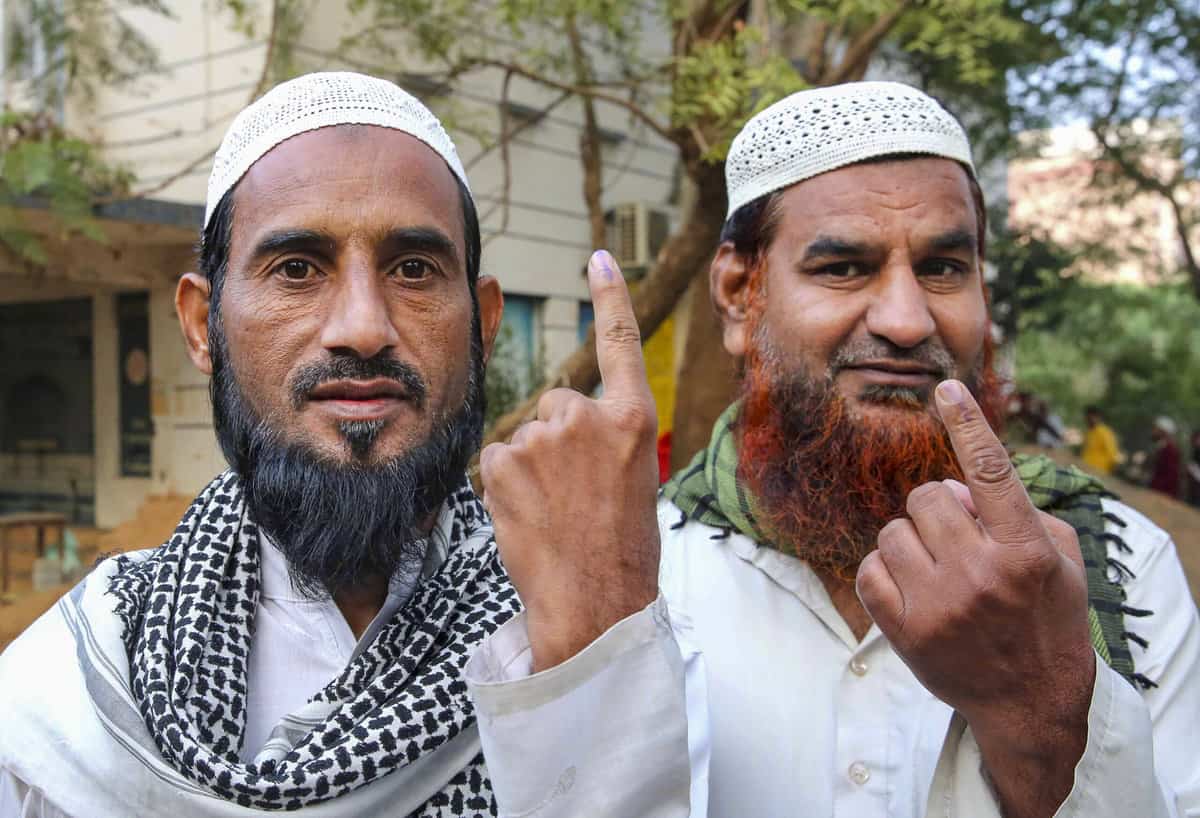
When the then Bihar chief minister Lalu Prasad Yadav got BJP patriarch Lal Krishna Advani arrested on October 23, 1990 and when his Uttar Pradesh counterpart, Mulayam Singh Yadav ordered police firing on Kar Sevaks in Ayodhya on October 30 and November 2 the same year leading to death of several of them, they did not seek the advice and instruction of diplomat-turned-politician, Syed Shahabuddin, Maulana Ahmad Bukhari or Salahuddin Owaisi.
The two young first-time CMs adopted their own way to fight their battle to what they claimed for safeguarding secularism. They both earned applause and criticism for their actions.
When all this was happening in those tumultuous years in India leading to the demolition of Babri Masjid on December 6, 1992 the Muslim leadership was completely clueless.
More than three decades later another generation of them have emerged. They make tall claims that it was due to them that Mulayam Singh Yadav and Lalu Prasad Yadav had become leaders. The truth is that gentlemen like Azam Khan of Samajwadi Party, (now late)
Mohammad Shahabuddin of RJD, or even for that matter Asaduddin Owaisi of All India Majlis-e-Ittehadul Muslimeen or Badruddin Ajmal of All India United Democratic Front were names hardly known outside their birthplace in 1990. Yet they and their supporters have outsmarted Syed Shahabuddin, Ahmed Bukhari and senior Owaisi, whom many believe that they not led, rather misled the community.
During his lifetime Salahuddin Owaisi was accused by his critics of being close to the then Prime Minister Narasimha Rao (1991-96), whom many Muslims equally hold responsible for the razing down of Babri Masjid. AIMIM got split in 1993 and the new outfit Majlis Bachao Tehreek won two seats in the 1994 Andhra Pradesh Assembly election which was swept by N T Rama Rao’s Telugu Desam Party. AIMIM won only one seat in Hyderabad and the lone MLA was none other than Asaduddin, the eldest son of late Salahuddin.
Replay of 1990s
It seems that 1990s is being replayed in 2024 when several Muslim leaders are keen to achieve their own personal goal or settle their score within their own respective parties. As they are sure that Muslim votes go to the secular parties and not the BJP, there is no point to target the latter. If they want to seek their own pound of flesh, they will have to damage the parties of Lalu or Mulayam or even for that matter of Mamata Banerjee. For their own selfish interest they tend to forget that not only the two Yadavs stood for them in the worst of times, the community got better representation in Lok Sabha and Assembly during their rule.
Whatever the complaints of Azam Khan or Hina Shahab, widow of Mohammad Shahabuddin, they need to remember that they are the beneficiaries of Lalu and Mulayam style of politics.
They need to come out from Rampur in UP and Siwan in Bihar. The irony with Rampur is that noted lawyer Mehmood Pracha has now decided to jump into the contest as an Independent candidate, thus jeopardizing the poll prospects of the Samajwadi Party.
Similarly, Badruddin Ajmal will have to be more flexible and understand the implications of the politics he is playing in Assam. His AIUDF is contesting in three out of 14 seats in Assam. In the rest it may support other parties, maybe even Congress.
The only exception is Indian Union Muslim League which has no problem in being a constituent of Congress-led United Democratic Front in Kerala.
Craving for power
The number of Muslim leaders craving for power is expanding with each passing day. The outgoing Rajya Sabha MP from Bihar, Ashfaque Karim, has announced to throw his hat in the ring as an Independent candidate from Katihar where he had established Katihar Medical
College in the 1990s. He is least bothered to listen to the saner voices that Katihar seat, under the agreement, has gone to former Union minister Tariq Anwar of Congress. The latter had won several times from here.
As in this changed polarized atmosphere Muslim candidates are losing their winnability and parties like RJD are giving them more representation in the Upper House. Apart from Ashfaque Karim, another Muslim who also runs a medical college in Madhubani, Faiyaz Ahmed, was sent to Rajya Sabha by RJD in 2022. Besides, two out of the four newly elected MLCs of the party from Bihar are Muslims. They are Abdul Bari Siddiqui and Faisal Ali.
In the 2019 parliamentary election RJD gave ticket to five Muslims when it had contested only 19 seats, which is about 27% against their population of 17% in the state. Apart from this its alliance partner Congress gave two seats. Yet a storm was raised in Bihar about the denial of due representation to the community.
As the Grand Alliance failed disastrously in 2019 and did not open its account RJD, in particular, may cut the number of Muslim and even Yadav candidates to accommodate Extremely Backward Castes and Kushwahas.
In UP too, the Samajwadi Party-Congress combine is following the same strategy. The disgruntled elements within the community are thoughtlessly raising the issue only to weaken Indian National Developmental Inclusive Alliance.



